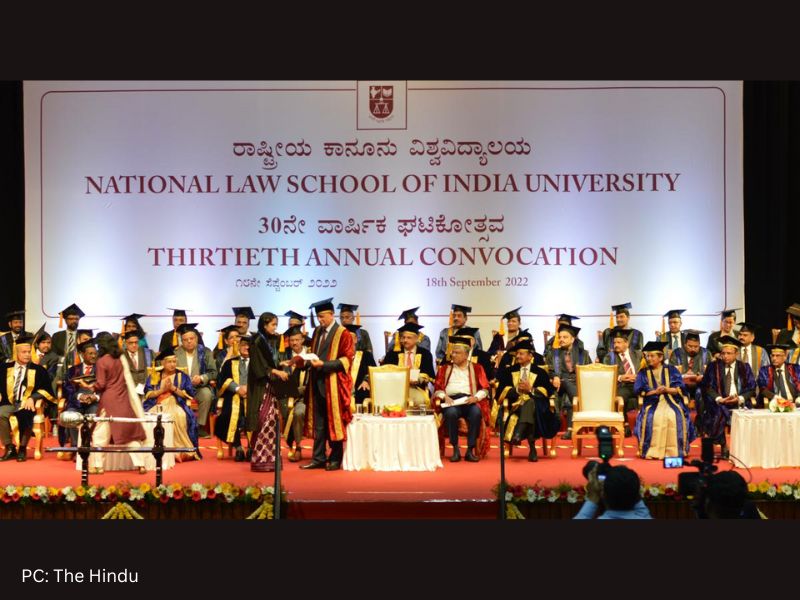The National Law School of India University, Bangalore’s convocation on Sunday saw as many as 76 BA LLB (Hons) graduates; 40 LLM postgraduates; 53 MPP postgraduates; 6 PhD candidates; 1 MPhil candidate; and 653 candidates from the Professional and Continuing Education receiving their course certificates.
Dr Prof Sudhir Krishnaswamy said that the graduating batches who have pursued their course while the Covid-19 pandemic was underway have soldiered through an ‘exceptional natural experiment’
“A Covid pandemic induced transition from physical to digital education in a few days from what may have otherwise taken a decade. They’ve emerged battle ready for the world of digital work and ready to embrace far deeper changes in our approach to the economy, politics and society. Your fortitude in pulling through these Covid disruptions will shape you in the years ahead and prepare you for the tectonic changes that await your generation,” he said.
Speaking about the varsity’s performance, he said, “Rankings serve as a proxy measure. Universities are built to measure up to ranking systems rather than the other way round. Despite these hazards, we’ve ranked No. 1 on the NIRF system 5 years in a row! This reflects the resilience of the NLS Bangalore model, and its ability to reinvent and adapt to changed circumstances. But rather than explain our past and current rankings, I’d rather engage in a more critical self-reflection that hints at our future directions and promise.”
It may be recollected that the varsity was ranked #7 in the composite EWIHER 2021-22, National Law School of India University (NLSIU), Bengaluru is India’s #1 public law and humanities university in 2022-23 with top scores in a record nine of ten parameters.
The initial cohort of 60 students of the new 3-year LLB (Honours) programme which was introduced in 2021-22 has completed a term on. “We remain confident that NLS will transform the 3-year LLB degree in India in the 2020s, much like we pioneered and electrified a new 5-year BA LLB law degree in the 1990s. We certainly believe that the new curricular model and intense pedagogical practices in the programme will put us on the track towards a second transformation in Indian legal education,” said Dr Krishnaswamy.
Meanwhile, Infosys chairman and co-founder Nandan Nilekani, the chief guest who delivered the convocation address said that there is a need for better formal systems of justice, including courts and legal aid besides the informal systems in the country.
He said that in a meeting with the Niti Aayog and Agami, a possibility of India pioneering Online Dispute Resolution (resolving disputes through technology and ADR processes) was discussed. “Today, just two years down the line, over 16 million disputes have been onboarded through ODR systems. Creative collaborations between private ODR providers and the Legal Services Authorities have resulted in over a dozen online lok adalats. Over 100 companies and 40 government departments are using ODR. An example I came across recently was the use of ODR by the non-profit Aajeevika Bureau to resolve nearly 3000 Covid-time wage disputes between migrant labour and their contractors. ODR is a great example of social engineering for new approaches but with agency at its heart,” he concluded.
Also read: National Law School of India University, Bengaluru
